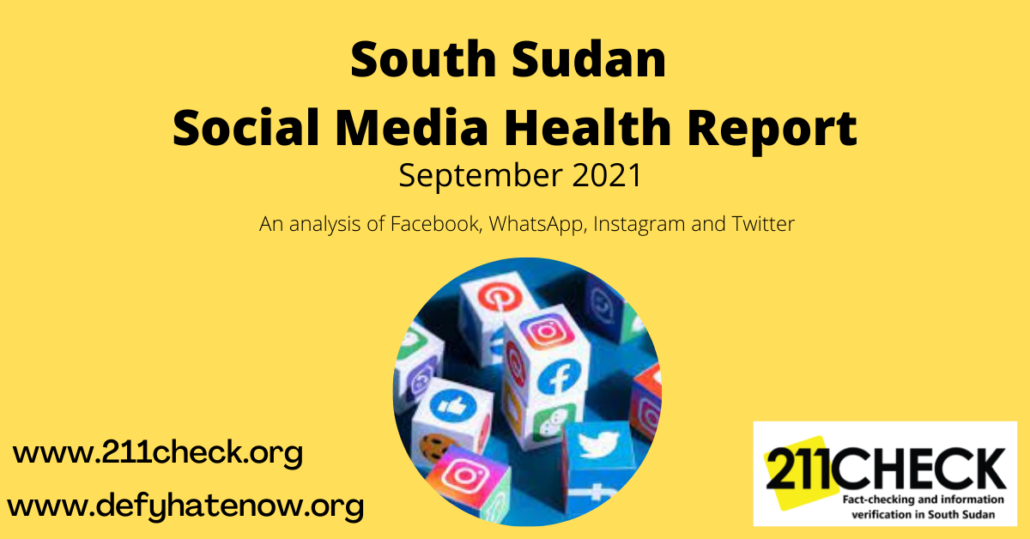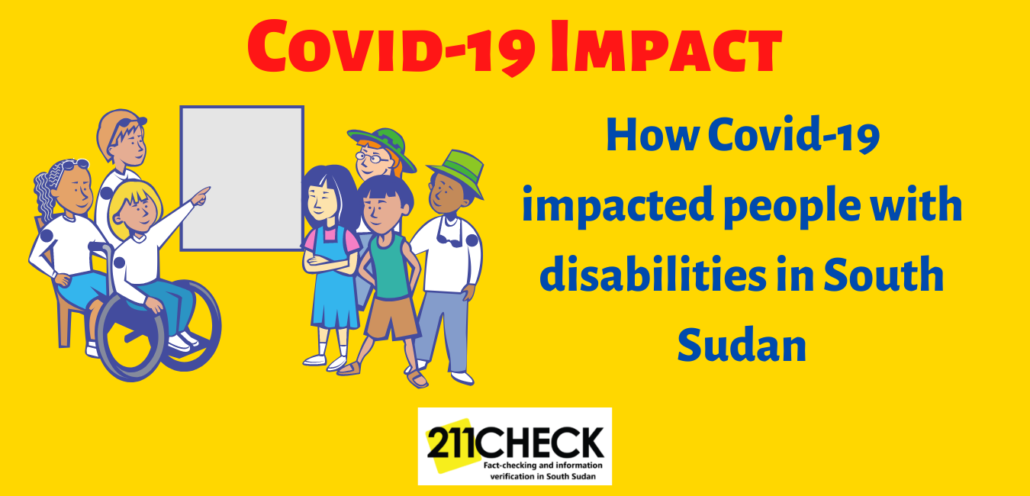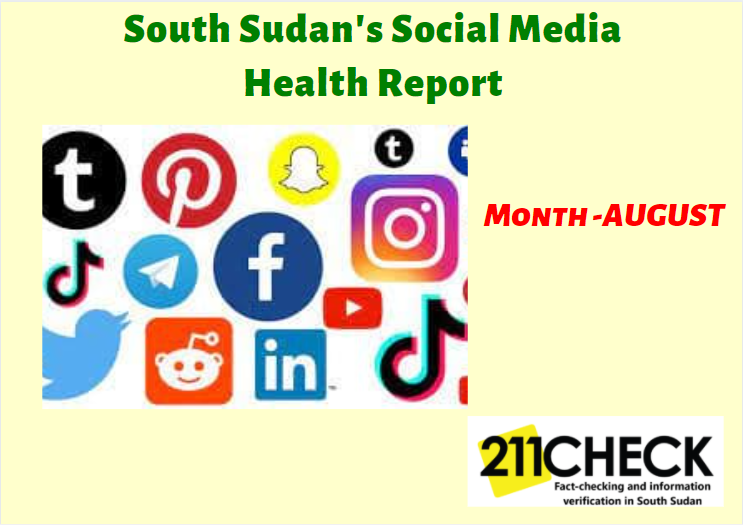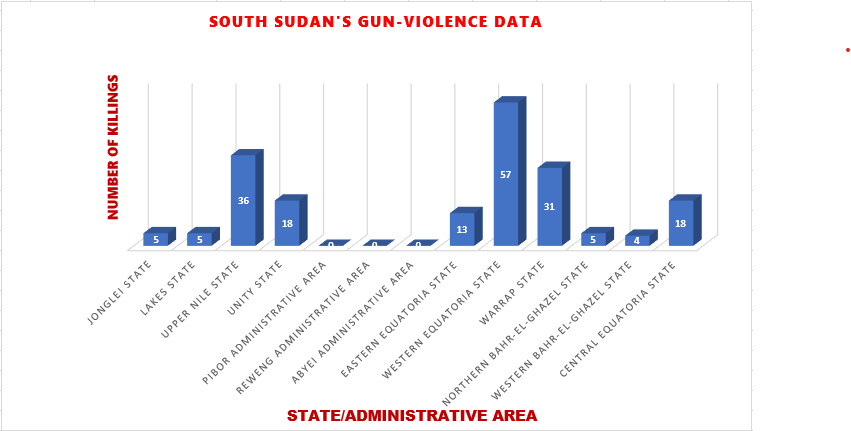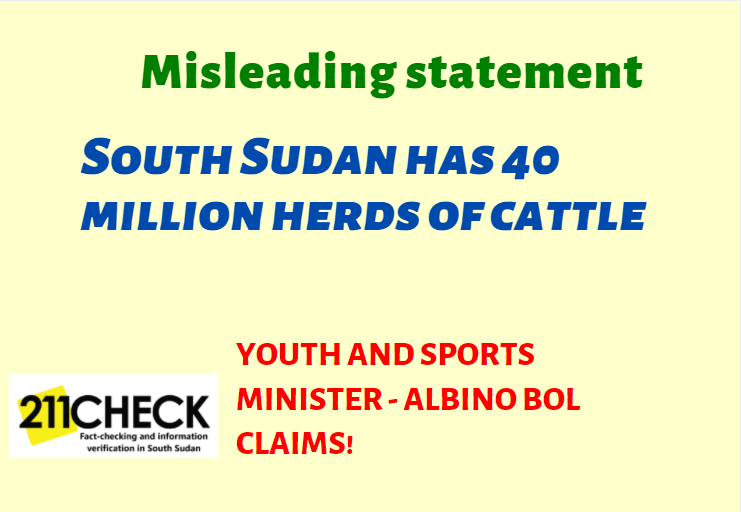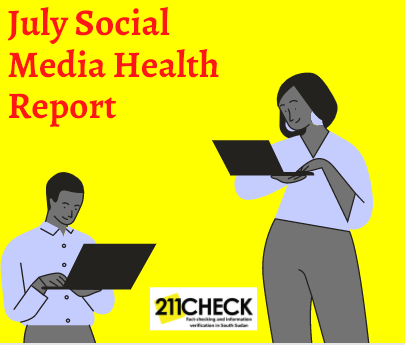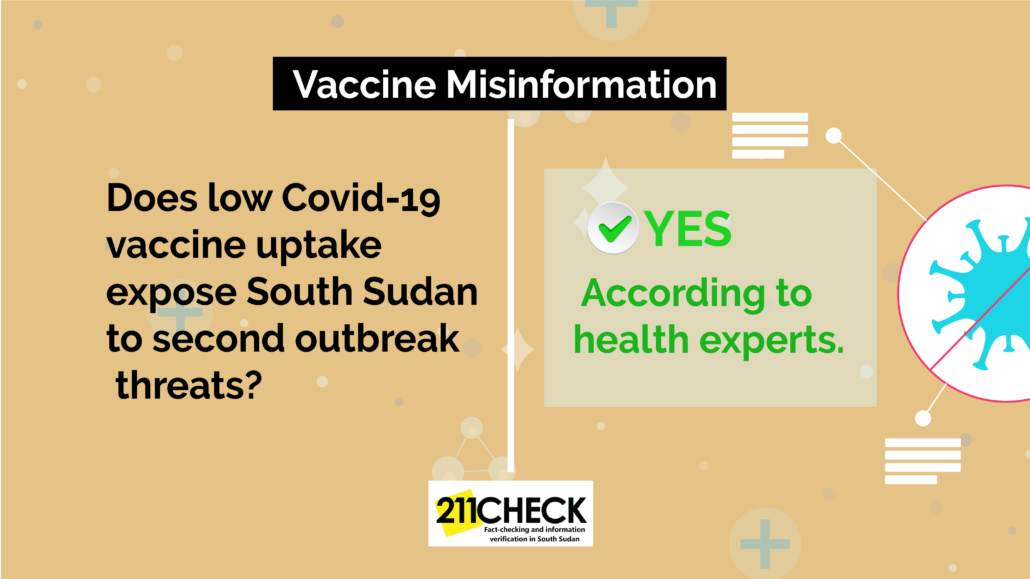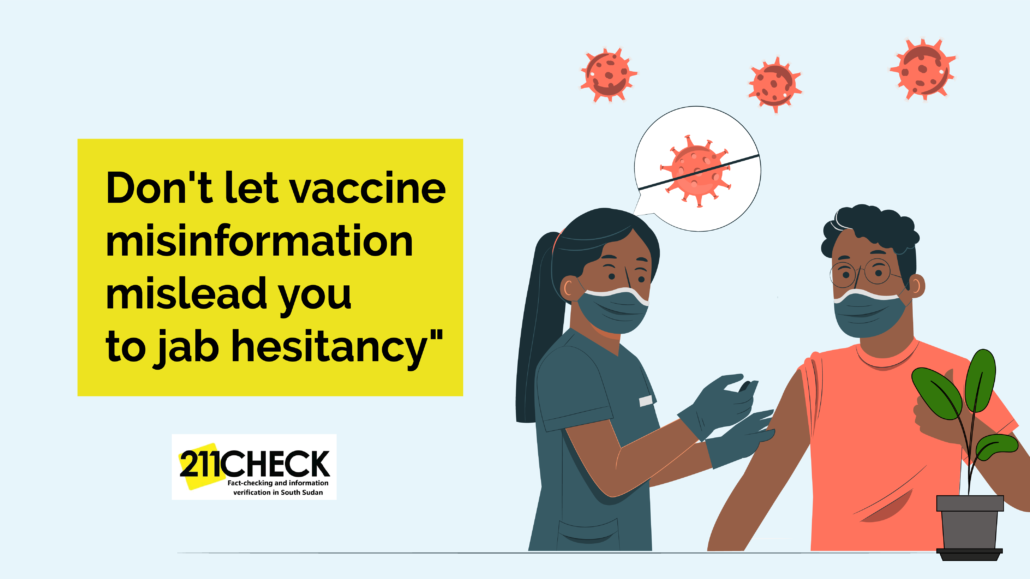September 2021 South Sudan Social Media Health Report
A 211 Check, Defy Hate Now South Sudan Report
Introduction
The monitoring for this social media health report took place from September 1, 2021, to September 30, 2021.
This month’s monitoring includes a comprehensive study of social media posts on Facebook, Twitter, Instagram, and WhatsApp using CrowdTangle, Vicinitas, and Better TweetDeck platforms.
The report’s content is based on how viral it is and how many people interact with it. This report also studies disinformation and/ or misinformation campaigns, online hate speech and incitement to violence, coordinated behaviour and/or influence operations.
Key issues of the month
- Omah Lay’s Show in Juba
A picture shared by SSDGuna.com, an online blog with the caption “Check out how Omah lay moved the audience at freedom hall..juba south sudan..” on Sunday, 5th September had over 4,000 interactions, 297 comments and 27 shares.
But, infact, the photo was not of his show in Juba, Freedom Hall. The photo shared by SSDGuna.com was when Omah Lay performed in Kampala, Uganda in 2021.
Many comments on the post disapproved of the post as being taken in South Sudan. “This is Uganda, the day he was arrested for breaking COVID-19 rules,” reads a comment on the post. “Nonsense. How can you copyright photos from Uganda claiming it was taken here. That’s why we don’t trust ourselves,” reads another comment.
- Speech by Student Representative at a graduation in Egypt
A video shared by South Sudan Media, a Facebook Page in which a South Sudanese Student Representative spoke during their graduation in Egypt got over 51,200 views, 3,000 interactions, 112 comments and 129 shares.
In the comment section, congratulatory messages were shared to all graduates. “Thousand million congratulations. God bless you all,” reads a comment.
- Viral Photos of Gau Gau Garang, a teacher in Aweil North County, Northern Bahr-el-Ghazal State
Photos of a teacher with disability, in Aweil North County, Northern Bahr-el-Ghazal State shared by SSDTV and other online media platforms went viral from 4th September through 6th September. Gau Gau Garang could be seen in pictures teaching primary school children under a tree. Many commentators described his contribution as the true meaning of “disability is not inability”
The online campaign offered him recognition by the state ministry of education and philanthropists.
- Juba City Mayor raids witchcraft home in Gudele Block 9, warns against the practice
A raid by Kalisto Lado, the mayor for Juba City Council in what has been termed as a “den” of witches in the Gudele suburb was a talk of Social Media on Sunday, 5th September 2021 – During a inspection visit, the mayor and his team surprisingly visited “witch house” where they found photos of people who have allegedly been bewitched.
The photos first posted by the mayor’s official spokesperson and re-shared by Talk of Juba got over 488 interactions, 316 comments and 540 shares. Several social media users on Facebook and Twitter made memes. The women arrested later appeared in court.
There were mixed views in the comments section. Though others praised the mayor, others did not like the idea – because according to them, witchcraft might be the source of livelihood for those whose shrine was raided.
- Vice President for Gender, Youth and Humanitarian Cluster lauds National Basketball team
The Vice President for Gender, Youth and Humanitarian Cluster, Rebecca Nyandeng De Mabior lauded the South Sudan National Basketball team for their outstanding performance in Rwanda.
She said she was very proud of the work of the team in their debut at the Afro Basketball 2021 and emerging 5th.
A Video shared by Twic Media Reports got over 16,800 views, 1,000 interactions, 100 comments and 93 shares. Commentators thanked her for acknowledging the great work of the Basketball team and its leadership. However, They called on the government to support the team financially.
- Adut Akech buys first house in America
The story of Adut Akech buying her first house in America at the age of 21 which she shared on Instagram on Saturday, 4th September got over 394,630 interactions, 10,316 comments and several shares on Facebook.
She captioned it “I DID IT, I BOUGHT MY FIRST HOUSE in America!!!!! 🥺🥺🥺🥺 I’m usually quiet about personal things like this, I just be moving in silence but this one is TOO big of an achievement and proud moment for me to not share with the world. I cannot believe that at 21 years old I’m a proud owner of 5 HOUSES!!! 🤯 I sit back reflect on my life and the things I have achieved within my career and personal life…. and damn I’m so bloody PROUD of myself for staying focused and working…”
Most comments were congulatory on her milestone, especially at a tender age.
- A touching message of an orphan girl child at Stone International Church asking for support from philanthropists and requesting the President for help because they are the future of this nation.
The video was shared by Dynamq, a South Sudanese singer with the caption, “When I wrote the song “Eyal Del” it was her story. Dynamq & The Voices of South Sudan | Eyal Del”
The video got a total of 102,400 views, 5,000 interactions, 470 comments and 861 shares. Several commentators expressed solidarity with the little child in the video.
- South Sudan earns respect after AfroBasketball 2021
On September 13th 2021, the President of the South Sudan Basketball Federation, Luol Deng said South Sudan has now earned respect following their performance at the Afro Basketball 2021 in Kigali, Uganda. According to him, many teams now needed their players. The post by City Review got 306 interactions, 31 comments and 11 shares.
Commentators poured congratulatory messages as well as appreciation to Lual Deng, the Federation’s president.
- South Sudan receives 152,950 doses of the Johnson & Johnson COVID-19 vaccines donation from the United States Agency for International Development (USAID).
A message shared by the US Embassy in Juba, South Sudan said the vaccines were of the United States Government’s efforts in fighting COVID-19.
The post had over 2,000 interactions, 128 comments and 38 reactions.Most comments were expressing gratitude for the support extended by the US government.
- Meet Kiden, a model with hearing defects representing South Sudan in Tanzania
Josephine Kiden is a 24-year-old model born in Juba with hearing defects. As the world marks the International week of Deaf People, South Sudan celebrates Kiden for qualifying to represent her country in the upcoming Miss and Mr. Deaf Africa 2021 beauty contest in Tanzania.
It has always been Kiden’s dream to prove to the world that deaf people are as talented as people without disabilities. Now is the perfect opportunity, she says. While growing up, children in school and in Kiden’s neighborhood would mock her, name-calling her “Atarasa,” an Arabic word for a deaf person. A word she detests bitterly.
- Twitter Engagement
In the last 10 days of September, 647 Twitter users in South Sudan made over 1,900 tweets with 7,000 engagements and had an influence of 6.1 million on Twitter as seen in the following image.
The most used hashtag is the #SSOT which stands for South Sudanese on Twitter followed by #SouthSudan. The #SSOT was used over 1,900 times whereas the #SouthSudan was used over 527 times
Most South Sudanese on Twitter retweet posts accounting for 67.4% and the most used media in these posts are photos with 87.7% followed by videos with 11.4%
Social Media Analysis:
The first week of the month had discussions revolving around Omah Lay’s show in Juba – a show that was sponsored by Lucky Charm, a music manager. This shows that the music industry continues to be of public interest on South Sudan’s social media space.
Another discussion in the same week was around the disabled teacher in Aweil Northern Bahr-el-Ghazal. The messages shared by commentators show that South Sudanese online are appreciative of the role played by persons with disabilities in the country. There are some digital natives who came forward to assist the teacher who subsequently received recognition for his state education ministry.
A crackdown by the Juba City Mayor on witchcraft and wizardry caught attention – nonetheless, in later stages of the discussion, men were throwing blames on women as person who are so much into the practice of witchcraft – these stereotypes did not go well with most women who answered back and there were unhealthy debates and counter blames.
Progress made by the national basketball team at the Afro Basketball in Kigali, Rwanda was in the middle of the month among the top discussed topics – this was supplemented by the remarks of the Vice President for Youth and Gender Cluster who lauded the excellent work of the club – and assured of government’s support to further develop the sport. – most commentators called on the government to support sports so it can go to the international level.
Instagram and Twitter: The number of South Sudanese on Instagram and Twitter continues to be really low. Most of the interesting and engaging discussions around South Sudan topics happen on Facebook and in WhatsApp groups. On Twitter South Sudan content is unified by the hashtags #SSOT and #SouthSudan. The word cloud above clearly gives an indication of the dominating discussions on Twitter.
Conclusion
Using social media monitoring technologies, discourse, and content analysis, this report examines the online behavior of South Sudanese social media users. Hate speech, misinformation, and disinformation efforts, also known as Coordinated Inauthentic Behaviour (CIB), have all decreased in the last few weeks, according to this month’s monitoring. Not just the postings, but also the comment sections, have been largely positive.
Furthermore, the speeches given by government representatives are neither violently inflammatory nor misleading. The words they choose and the way they deliver them to the public are carefully chosen.
Furthermore, the report found that social media users are open and courteous in their interactions.
As a result, according to the research, total social media involvement is fairly healthy. There hasn’t been anything in the way of hate speech or demands for violence. As a result, powerful activists and government leaders should avoid spreading conspiracies and sending conflict-sensitive messages.

